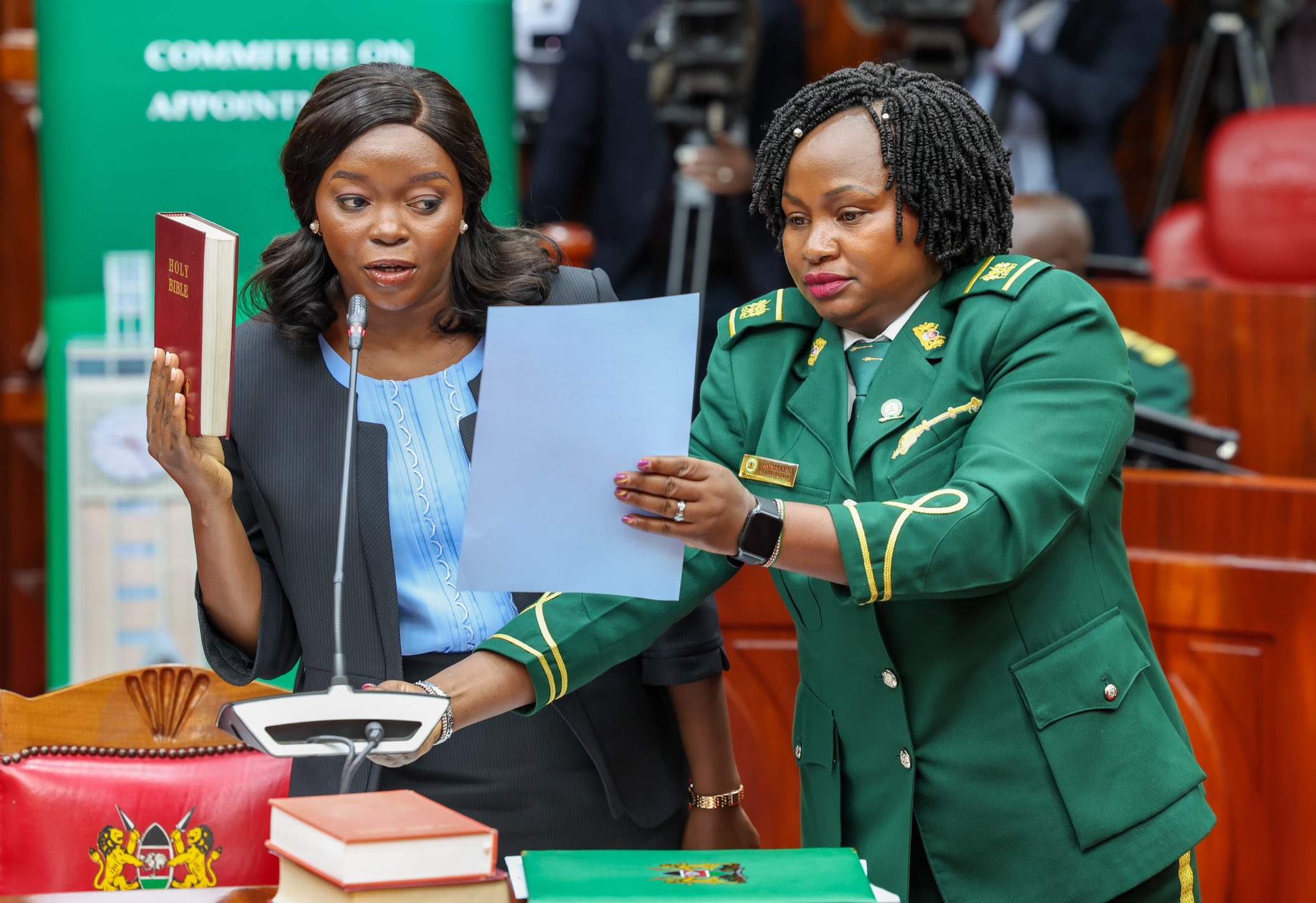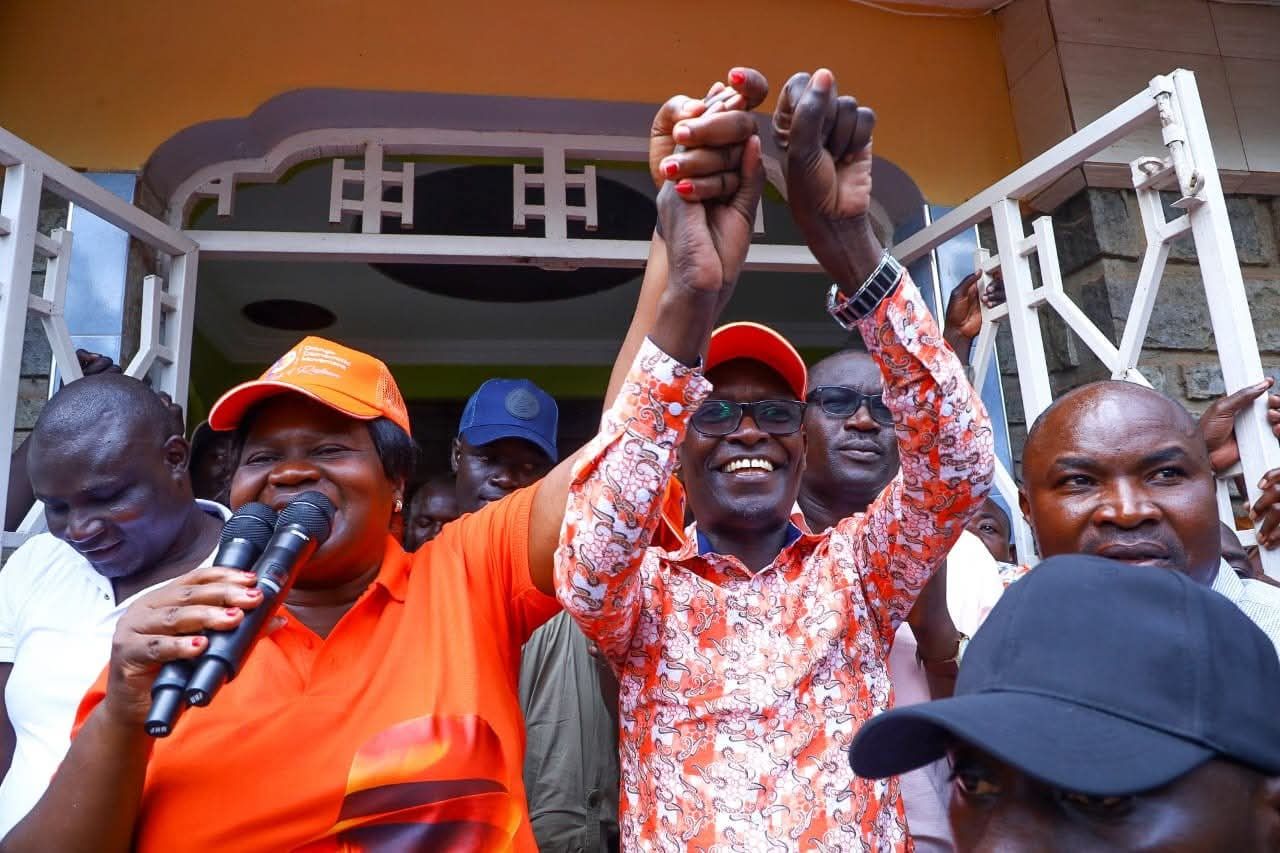Health CS nominee ‘consultative approach’ under scrutiny: Will it deliver results?

The term “consultative approach” refers to a method of collaboration where individuals or groups work together to achieve the best possible outcomes while fostering trust and commitment.
Health Cabinet Secretary nominee Debra Barasa repeatedly emphasised a "consultative approach" term in response to various questions posed by the Committee on Appointments during her vetting session on Thursday.
Throughout the session, Barasa maintained that collaboration and stakeholder involvement are essential for effective health management.
More To Read
- Gender CS nominee Hanna Cheptumo says women killed in Airbnbs were after money
- Watch: MPs vet Gender, Culture and Arts CS nominee Hanna Cheptumo
- Public Service CS nominee Ruku proposes splitting of TSC powers to curb graft
- Nakhumicha rejects claims of Gachagua’s involvement in Sh3.7 billion KEMSA tender scandal
- National Assembly resumes sitting with focus on vetting of Ruto’s nominees, tax amendment bills
- Cabinet reshuffle: Duale appointed Health CS as Barasa takes Environment role
But what exactly is a 'consultative approach'?
The term “consultative approach” refers to a method of collaboration where individuals or groups work together to achieve the best possible outcomes while fostering trust and commitment. This approach is a cornerstone of quality management, facilitating a cooperative process that enhances the likelihood of success.
When asked about addressing the transition from the National Health Insurance Fund (NHIF) to the Social Health Insurance Fund (SHIF), Barasa said, “My approach is a consultative one. It is critical to bring all stakeholders together. We also need to involve the community and ensure they are well-informed.”
On issues related to health management in a devolved government structure, Barasa reiterated, “Again, a consultative approach. I believe we need to involve the County and National governments to have open dialogue and come up with interventions. We need to conduct a situational analysis and identify the strengths, weaknesses, opportunities, and threats.”
Regarding the problem of retaining deceased bodies and patients in hospitals due to unpaid bills, Barasa again cited the need for consultation: “So strategically, I think we need to consult and see what the gaps are and then involve the treasury.”
When Leader of the Majority Kimani Ichungw'ah inquired about Barasa's plan to combat theft in NHIF and reduce healthcare costs, her response was still consistent: “First of all, my approach is a consultative approach involving the multiple stakeholders.”
Further, when asked by Kathiani MP Robert Mbui about eradicating corruption in the health ministry, Barasa maintained, “Again, a consultative effort. It is important that we think strategically, involve the various stakeholders, the Nationals Technical Working Group, the PSs and DGs to conduct a situational analysis and see where the gaps are.”
Barasa’s emphasis on a consultative approach drew both attention and criticism. While it underscored her dedication to collaborative methods, it also raised concerns about her ability to deliver direct leadership and specific solutions to urgent health issues.
The repeated use of the term also sparked debate among Kenyans. Some questioned whether her reliance on this term indicated a reluctance to address questions directly.
“I've watched the vetting of Dr Debra Barasa, the Cabinet Secretary nominee for Health with consternation and ultimate disapproval. She looks to be completely out of touch with realities in the health sector,” Fredrick Bundi said in his X account.
“I'm so ashamed we are not serious about the health of this nation, Health CS Dr Debra Barasa is so incompetent from the way she's answering the questions. Everything is consultative!” Brian Toel remarked.
At some point during the session, Pokot South MP David Pkosing challenged Barasa's frequent reference to the consultative approach pressing her for a more personal stance.
“What is your opinion nominee minister? If you say consultative what's your opinion as the leader? What do you support or don't even support before you do your consultation?" Pkosing posed.
Matungulu MP Stephen Mule also critiqued Barasa’s use of the term, stressing the need for clear plans and personal management strategies.
“I want to hear how you will transition from that set mind of thinking and no wonder you are telling us every time consultation. Here it is whereby the law applies. The law which is applying at KEMSA is not the same law which is applying with the doctors,” Mule said.
Despite the criticisms, Barasa did express support for specific initiatives, such as the establishment of the National Health Service Commission, stating, “As part of the doctors' fraternity, I support the creation of the health commission.”
If Barasa is appointed to the Ministry, all eyes will be on her to determine whether she can deliver on her promises using her consultative approach.
Top Stories Today
















































